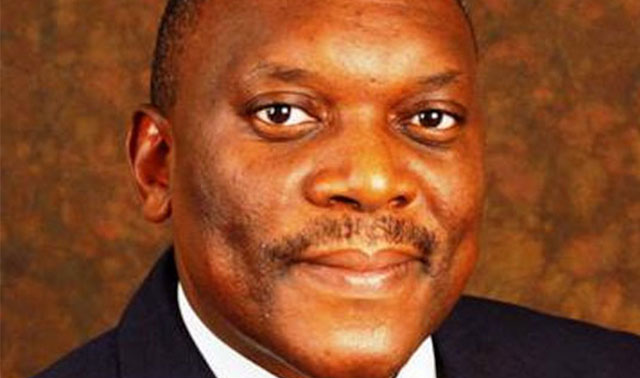
Telecommunications & postal services minister Siyabonga Cwele is considering a proposal from six South African telecoms operators, and presented by Deloitte, that, if accepted, could help overcome the impasse between the industry and government over the contentious ICT policy white paper.
TechCentral has established that the joint proposal — which is for a “hybrid” model that involves both the allocation of exclusive-use spectrum to the operators and to a new wholesale open-access network (Woan) favoured by government — has been advanced in the hope of avoiding a messy legal battle over the policy paper.
The six operators behind the Deloitte agreement, according to two well-placed industry sources, are Vodacom, MTN, Telkom, Cell C, Neotel and Wireless Business Solutions.
Deloitte presented the proposal to Cwele and officials from the telecoms & postal services department at a recent consultative forum over the implementation of the white paper.
South Africa’s big operators, including Vodacom and MTN, have criticised the white paper for proposing that no further exclusive-use “high-demand” spectrum be allocated to them and that all future such spectrum — spectrum that can be used to build, for example, 4G/LTE networks — be allocated to the Woan.
The white paper has even raised the possibility of taking away existing spectrum assignments that the operators have used to build their 2G, 3G and LTE networks, though sources say government does not intend to carry through with this threat.
The spectrum and Woan plans have been widely criticised by experts and analysts and bodies such as the Free Market Foundation for seeking to create a new telecoms infrastructure monopoly in South Africa. Government has said it wants companies to compete on services and not on network infrastructure, which it believes leads to unnecessary and costly duplication.
If government presses ahead with its plans for the Woan, to the exclusion of the model that has been applied in the industry for the past 20-plus years, it appears inevitable that the big operators will challenge it in court. This would be an unfortunate development as it would delay the allocation of much-need spectrum so that the networks can continue to roll out broadband services.
The operators, through Deloitte, have now proposed what they believe is a middle ground in which they still get access to spectrum for their own use, while supporting the development of the Woan project.
In the presentation, which TechCentral has seen, the operators propose that the Woan be privately owned, have black ownership of a minimum of between 30% and 50%, that that the minimum qualifying criterion for participation is a R100m bid bond.
The operators have also committed to purchasing a minimum of 30% of the Woan’s network capacity in order to make it feasible. It should also enjoy key government support in the form of state contracts, they said.
It should offer 4G/LTE wholesale services to mobile network operators, mobile virtual network operators and Internet service providers on a national basis. “Sufficient” spectrum — the exact amount is not defined in the Deloitte presentation — should be made available to the Woan and it should have access to the mobile networks’ facilities and infrastructure.
At the same time, the network operators have agreed to meet level-2 broad-based black economic empowerment targets “within a defined period”, along with other empowerment goals. In return, they want a guarantee that they’ll be able to keep existing spectrum assignments until the end of the licence periods and be assigned additional high-demand spectrum not assigned to the Woan.
Under the plan, mobile operators will continue to compete at both the infrastructure and services levels and will provide access to infrastructure and services on a non-discriminatory basis.
Additional spectrum must be assigned in a “fair and transparent” manner, while the operators will work with broadcasters to accelerate analogue switch-off so as to speed up release the digital dividend spectrum below 800MHz that is currently used for UHF television.
The Deloitte presentation calls for a technical evaluation to determine the Woan’s spectrum requirements “to ensure viable options” and for the development of an economic model based on spectrum requirements for the proposed hybrid model.
The ball now appears to be firmly in Cwele’s court. The minister’s spokesman, Siya Qoza, said in e-mailed response to questions from TechCentral that government is “continuously engaging all role players on the implementation” of the white paper.
“We have received suggestions covering various aspects of the policy from, among others, 12 industry associations and other operators. All these inputs are being considered. We remain committed to finalising the implementation plan by the end of the March 2017,” Qoza said.
He warned, however, that the consultations with industry are on the implementation of the white paper, “not on renegotiating it”.
“The department has shared the draft implementation plan and the accompanying legislative programme with the role players. The white paper outlines public participation processes that need to be followed to finalise decisions in relation to the incumbents’ spectrum holdings. More consultation will happen when the bills are published, as it is standard practice. We are not aware of reasons for legal challenges as these processes have not been concluded.” — © 2017 NewsCentral Media




